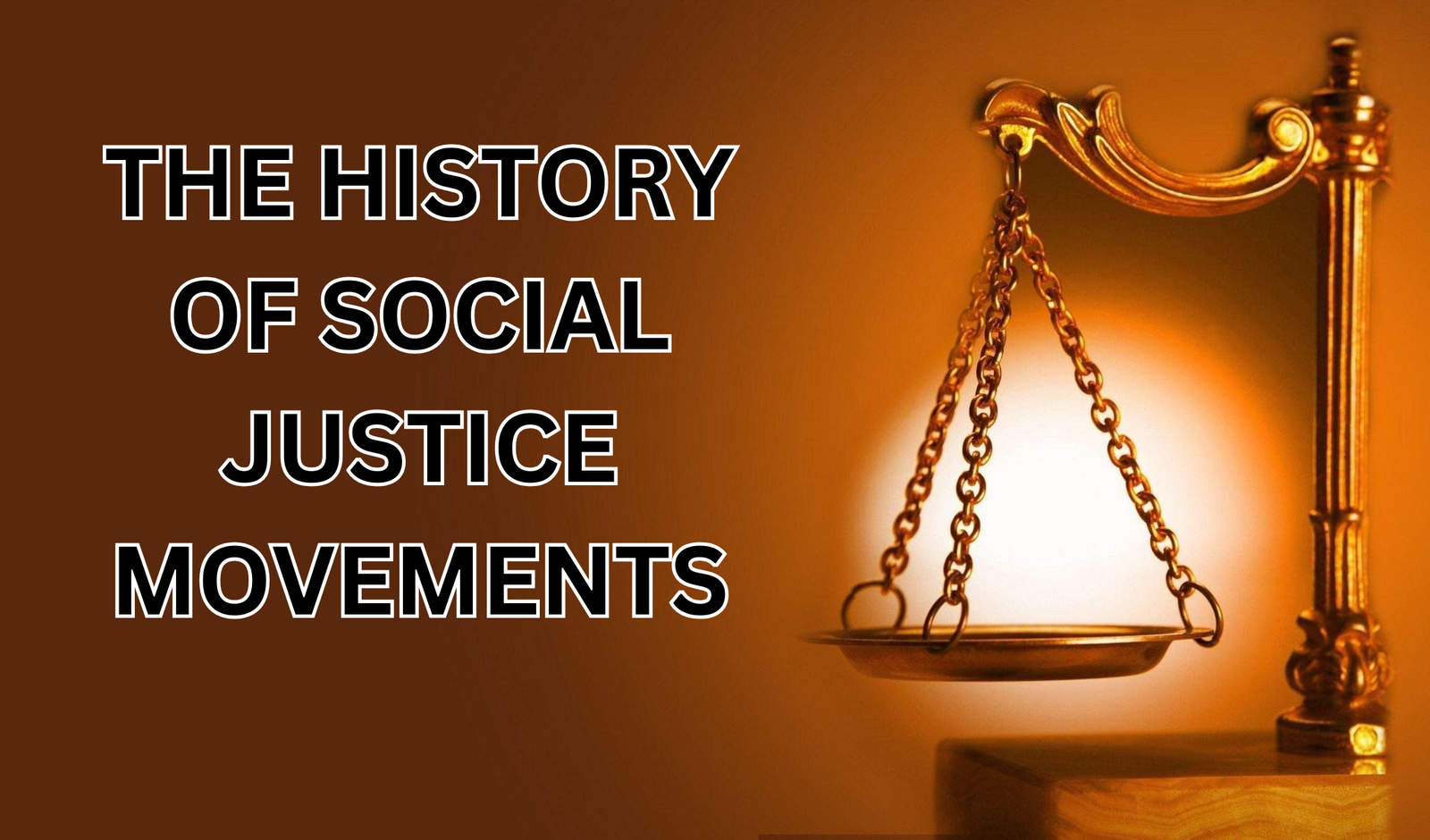Social justice movements have shaped history by challenging inequality and advocating for fairness in society these movements arise from the collective efforts of individuals and groups determined to address injustices and create positive change rooted in values like equality human rights and dignity they focus on issues such as racial and gender discrimination economic inequality environmental justice and more from the abolition of slavery to the fight backgrounds to work toward shared goals.
Each movement reflects the spirit of its time often driven by inspiring leaders and grassroots efforts modern technology and social media have amplified these efforts allowing movements to gain global support and visibility social justice is not just about addressing past wrongs but about building a more inclusive and equitable future for all as society evolves these movements continue to play a vital role in shaping a world where everyone has the opportunity to thrive.
Early Social Justice Movements (18th-19th Centuries):
Early social justice movements in the 18th and 19th centuries laid the foundation for modern struggles for equality and human rights these movements emerged during times of significant social and political change as people began to challenge longstanding systems of oppression and inequality one of the most prominent early movements was the abolitionist movement which sought to end the transatlantic slave trade and slavery itself activists like Frederick Douglass Harriet Tubman and William Wilberforce played key roles in advocating for the rights and freedom of enslaved individuals the women suffrage movement gained momentum in the 19th century.
Labor movements also rose during this period as workers organized to demand fair wages safer working conditions and shorter hours in response to exploitation during the Industrial Revolution these early movements often faced strong resistance but demonstrated the power of collective action and moral conviction their efforts sparked global conversations about justice and human rights inspiring future generations to continue the fight for a fairer and more just society.
Civil Rights Movement (1950s-1960s):
The Civil Rights Movement of the 1950s and 1960s was a pivotal era in the fight for racial equality and justice in the United States sparked by decades of segregation discrimination and systemic racism this movement sought to dismantle laws and practices that treated African Americans as second-class citizens leaders like Dr. Martin Luther King Jr. Rosa Parks, Malcolm X and many others played key roles in organizing protests marches and boycotts that demanded change. Iconic events such as the Montgomery Bus Boycott and the March on Washington captured the nation attention and highlighted the deep injustices faced by Black.
Through nonviolent resistance and civil disobedience activists achieved significant victories including the Civil Rights Act of 1964 and the Voting Rights Act of 1965 which outlawed segregation and discriminatory voting practices these achievements the movement faced immense opposition with many activists risking their lives to bring about change the Civil Rights movement not only transformed American society but also inspired other marginalized groups worldwide to fight for their rights and equality.
Feminist and LGBTQ + Movements (1960s – 1980s):
The feminist and LGBTQ+ movements of the 1960s to the 1980s marked a period of profound social change as people fought for gender equality and LGBTQ+ rights the feminist movement often called the second wave of feminism focused on breaking barriers in education employment and politics while addressing issues like reproductive rights domestic violence and unequal pay activists such as Gloria Steinem and Betty Friedan became prominent voices advocating for women empowerment and the dismantling of patriarchal systems.
During the same era the LGBTQ+ rights movement gained momentum challenging widespread discrimination and seeking acceptance and equality the 1969 Stonewall Riots in New York City are widely considered a turning point as they sparked greater activism and visibility for the LGBTQ+ community organizations like the Gay Liberation Front and figures such as Harvey Milk worked tirelessly to advance rights and awareness facing intense backlash and societal stigma both movements achieved significant progress including greater legal protections and increased visibility.
Modern Social Justice Movements (1990s – Present):
Modern social justice movements, from the 1990s to the present have expanded in scope and influence addressing a wide range of issues such as racial justice gender equality environmental sustainability LGBTQ+ rights and more with the rise of the internet and social media these movements have been able to mobilize quickly and reach a global audience movements like Black Lives Matter which began in 2013 have brought attention to police brutality and systemic racism sparking protests worldwide movement which gained prominence in 2017 has shed light on sexual harassment and assault empowering survivors to speak out and demand accountability.
Climate activism has also grown with figures like Greta Thunberg and organizations such as Extinction Rebellion calling for urgent action to combat climate change LGBTQ+ advocacy has continued to push for equality achieving milestones like marriage equality in many countries and greater awareness of transgender rights modern movements often intersect recognizing that issues like race, gender and class are interconnected while significant progress has been made challenges remain and these movements persist in their fight for a more equitable and just world.
